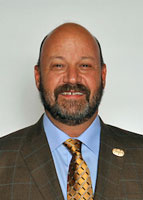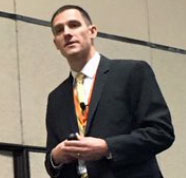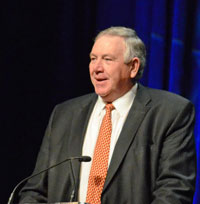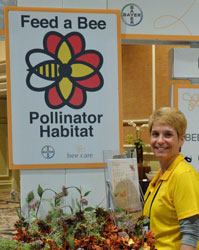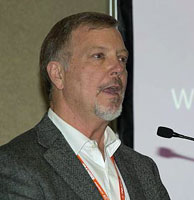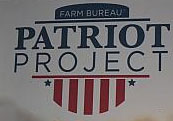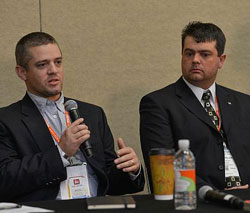 A coalition of stakeholders in the food and agriculture systems is urging the presidential candidates to focus on the policies that can improve the health of America’s families, economy, farms and the environment. In this news release from AGree, the call includes a strategy for elevating food and agriculture as a national priority.
A coalition of stakeholders in the food and agriculture systems is urging the presidential candidates to focus on the policies that can improve the health of America’s families, economy, farms and the environment. In this news release from AGree, the call includes a strategy for elevating food and agriculture as a national priority.
“Many people don’t realize the degree to which food and agricultural policies shape our nation,” said Dan Glickman, AGree co-chair and former U.S. Secretary of Agriculture. “Farmers and ranchers and the food and agriculture supply chain from ‘farm to fork’ contribute roughly 5 percent of the gross domestic product (GDP) and employ more than 12 million people, yet they face challenges with market volatility, drought, floods, disease, food safety and a reliable labor supply. Policy changes are urgently needed to overcome these challenges.”
AGree, a bipartisan group driving positive change in the food and agriculture system, has engaged more than 2,000 food and agricultural thought leaders to identify key issues and develop consensus recommendations to ensure American agriculture continues to thrive, providing the safest, most affordable food supply in the world. These recommendations are the basis of AGree’s Call to Action being presented to campaigns on both sides of the aisle.
“Food and agriculture-related businesses contributed $878 billion to the U.S. GDP in 2013, and it’s critical to enact policy changes that will enable agriculture to continue to drive innovation, allow access to a stable workforce, protect the environment and empower future generations to provide safe, nutritious, affordable food,” said Jim Moseley, AGree co-chair and former U.S. Deputy Secretary of Agriculture.
The Call to Action advocates smart policy changes to strengthen the food and agricultural sector, which, in turn, will strengthen our nation.
– Strongly support research and innovation for food and agriculture. Research drives innovation and agricultural research on weather volatility, obesity and water quality require greater focus, while addressing underfunding.
– Ensure a stable workforce through immigration reform. Agriculture faces challenges of an unreliable labor supply and would be helped by a simple, efficient and fair guest worker program and a system through which citizenship can be earned by undocumented immigrants currently in the U.S.
– Empower the next generation to ensure a safe and affordable food supply. The average age of U.S. farmers is 58 and new entrants face enormous challenges, including land and equipment acquisitions.
– Strengthen risk management policies and practices. Balancing risk protection and costs, while integrating data on soil, yield risk and conservation practices are needed.
– Bolster conservation and working landscapes. Regulations alone cannot ensure the landscape-level actions needed, so policies that encourage producer-led, watershed-scale efforts involving the supply chain and demonstrating effectiveness and a measurable return on investment must be implemented.
The group goes on to point out how improving health and nutrition can also help reduce health care costs.
 In this week’s program we will meet the CEO’s of the National Potato Council and the United States Potato Board. I met both of these guys while covering the Potato Expo last week for my first time.
In this week’s program we will meet the CEO’s of the National Potato Council and the United States Potato Board. I met both of these guys while covering the Potato Expo last week for my first time.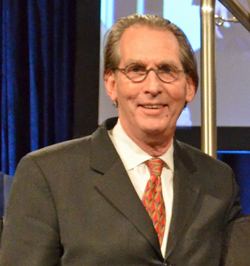 Let’s start our with John Keeling, CEO of the National Potato Council. We focused on potato policy issues which as you might guess are very similar to other farm commodities. They include WOTUS and food labeling issues. Foreign trade is also a very critical issue for the sustainability of potato growers.
Let’s start our with John Keeling, CEO of the National Potato Council. We focused on potato policy issues which as you might guess are very similar to other farm commodities. They include WOTUS and food labeling issues. Foreign trade is also a very critical issue for the sustainability of potato growers. Next up I talked with Blair Richardson, President & CEO of the U.S. Potato Board. The gong you can see behind him was used at the close of his report to signal the unveiling of the Spud Nation Food Truck.
Next up I talked with Blair Richardson, President & CEO of the U.S. Potato Board. The gong you can see behind him was used at the close of his report to signal the unveiling of the Spud Nation Food Truck. 



